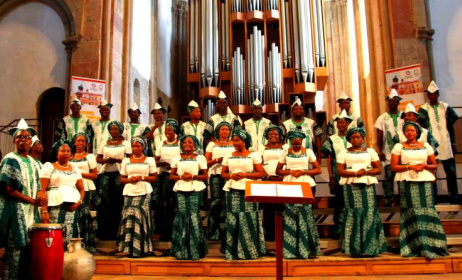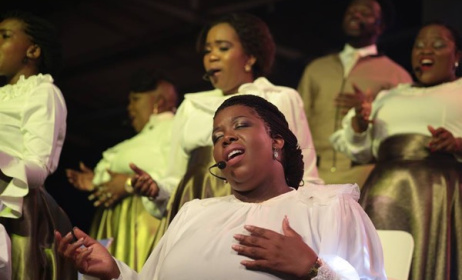How 'Fada Fada' reversed the church-gyration flow
In tertiary institutions across Nigeria, groups of young men and women gather on specified meeting days in joints to share kegs of palm wine. They're popularly known as Kegites. Their drink-fest is usually accompanied by sessions of singing and dancing known as gyration. This is a form of revelry backed by energetic playing of drums and swinging of inebriated hips that employs songs adapted from church traditions—usually close to the singing styles of white-robe-wearing Celestial Church of Christ—and turns them into the praise of the keg, or as a way of telling stories about the members. Rarely, if ever, does a song begin in the gyration tradition and end up in the church—that is before Phyno’s 'Fada Fada'.
 Phyno
Phyno
The flow between the church and the Kegites’ Club has always been consistent: it is only after songs have become ubiquitous in churches that they are transformed and adapted into sing-alongs for the revelry. Gyration, for a while, enjoyed presence in popular Nigerian music: in Pasuma’s Fuji Gyration and in Tony One Week, whose musical career has been defined by the kegite culture.
Phyno’s Fada Fada is also obviously composed in the tradition of gyration. But Phyno, in smart genre-blending moves, places the church and Gyration together in the music video, creating a track that can move in both directions with ease. The video features a Phyno going to the confession and also a gyration session where the red-cup replaces the calabash as the carrier for the alcohol. It is Olamide, who ends his rap feature with "wa lele where you dey," a popular gyration coda, that gives away the most obvious clues to the gyration roots of the song.
In 2016, 'Fada Fada' became one of the more popular thanksgiving songs in churches to close out the year. This isn’t the first time a secular song has made its way into Nigerian churches. Korede Bello’s 'Godwin' recently made the same move. Korede's song exists in that familiar trope of a gospel song done by a secular artist with the intention of attracting a larger audience. Nearly every Nigerian popular music artist has a version of this trope, and King Sunny Ade’s Merciful God is perhaps the ultimate Nigerian song by a secular artist that has been accepted by Christians as one of their own. While Korede’s song was enjoying much airplay, he was also courted by churches to the point where he got an invite to perform as a guest minister. No one will do the same with Phyno, as he does not make any attempt to appeal to a sacred taste outside of his established act.
In the manner with which Kanye West’s Jesus Walks earned him a best gospel artist nomination at the BET awards, 'Fada Fada' only needs a nomination in a Nigerian gospel music category to be sure of a win. And like R-Kelly’s I Believe I can fly was welcome in congregations where it’s singer would be a persona-non-grata, 'Fada Fada' seems destined to travel to the worship sessions that will normally place a distance betwen themselves and Nigeria's premier Igbo-speaking rap artist. All that is left is for the choir of any of the popular pentecostal congregations to do a popular cover of Phyno’s earworm, and the flow from gyration to the church will be complete.































Comments
Log in or register to post comments